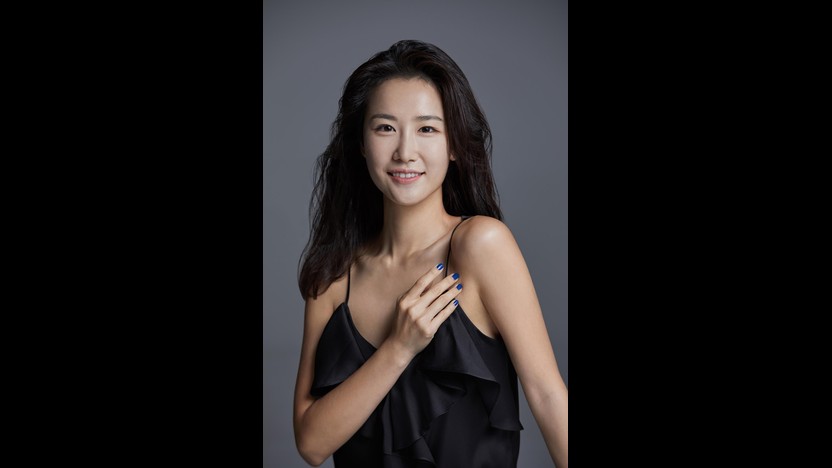Hera Hyesang Park


While Hera Hyesang Park has won rave reviews for her fine singing and stagecraft, there is much more to her artistry. The South Korean soprano’s cosmopolitan mindset and determination to challenge racism, discrimination and stereotypes of all kinds are also essential elements in her approach to making music. Performing and recording are, for her, both acts of self-discovery and heartfelt, emotionally honest ways to connect with others. With its immaculate technique and apparently infinite variety of tone colours, her lyric coloratura voice reflects the fearless nature of the Park performance style – always daring, never dull.
Hera Hyesang Park’s rising-star status is supported by a series of critically acclaimed performances everywhere from the Metropolitan Opera to the Glyndebourne Festival. In 2019 she won plaudits for her house debut as Musetta in Barrie Kosky’s new production of La bohème at the Komische Oper Berlin. Later in the year, her run as Rosina in Il barbiere di Siviglia at the Glyndebourne Festival was described by The Times (London) as “phenomenal”, while Classical Source commended her for discovering an “element of vulnerability and pathos that adds flesh and blood to the character”.
The free-spirited soprano signed an exclusive agreement with Deutsche Grammophon in May 2020. She marked the occasion with a virtual recital for the Yellow Label’s “Moment Musical” series, streamed from Berlin’s Meistersaal. Recorded with the Wiener Symphoniker and Bertrand de Billy, Park’s DG debut album is built from songs and arias dear to her heart. I am Hera, which was released digitally in November 2020 and had its physical release in January 2021, includes music by Bellini, Gluck, Handel, Mozart, Pergolesi, Puccini and Rossini. It also embraces works by Korean composers Joowon Kim and Un-Yung La, including the latter’s uplifting setting of Psalm 23.
“Instead of making myself perform a list of songs that might impress others, I decided to take a chance on myself and perform songs that resonate with my core values,” Park told OperaWire in May 2020. “I feel my purpose is to make the world a little better by living a healthy life and knowing that the talent I have been given is in essence meant to bring more light to the world.”
Park’s personality and her evolution as a singer have been shaped by her Korean roots and by her experience of life in the West. She describes herself as “traditional but uncommon”, always ready to learn from classical and modern attitudes to life and art.
In September 2020 Park sang the role of Violetta Valéry in the world premiere of the 7 Deaths of Maria Callas, Marina Abramović’s pioneering opera project for the Bayerische Staatsoper, a role which she reprised at the Opera de Paris in September 2021. Other recent highlights include her role debut as Pamina in the Met’s production of The Magic Flute, Despina Cosi fan tutte and Susanna le Nozze di Figaro at Glyndebourne Festival and Adina in Donizetti’s L’Elisir D’Amore at Berlin Staatsoper (which she revisits in the Staatsoper’s opening production of the 2022/23 season).
Hera Hyesang Park’s gift for performing, recognised and encouraged at an early age, led to studies at the Seoul National University and at New York’s renowned Juilliard School of Music. She made her international breakthrough in 2015 when she was among the prize winners at Plácido Domingo’s Operalia Competition, going on to win first prize at the Gerda Lissner Foundation International Competition in 2016 and the coveted Hildegard Behrens Foundation Award in 2018. Her flair for fashion subsequently caught the eye of Vogue editor-in-chief Dame Anna Wintour, who chose the Giambattista Valli gown that Park wore to New York’s Met Gala in 2018.
After completing her two-year Artist Diploma in Opera Studies at the Juilliard School in 2015, Park became a member of the Metropolitan Opera’s prestigious Lindemann Young Artist Development Program. She made her house debut at the Met in 2017 as the First Wood Sprite in Rusalka and made a successful return in 2019 as Amore in Mark Morris’s staging of Orfeo ed Euridice. Other career highlights include her Bayerische Staatsoper house debut as Despina; Aldimira in Rossini’s Sigismondo with the Münchner Rundfunkorchester; Brahms’s Ein deutsches Requiem at Leipzig’s Thomaskirche; and concerts with the New York Philharmonic Orchestra and for Los Angeles Opera.
